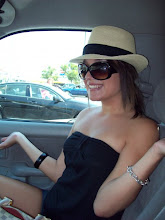After reading Foucalt's explanation of panopticism as a means for discipline, I could not help but thinking of the film "The Truman Show". Even though the main character was adopted by a network when he was a new-born, he is monitored every minute of every day. He lives in a controlled environment, where every occurrence is contrived by one of the producers of the show. Through these events, Truman has created a typical behavior and routine that is the subject of entertainment for thousands of viewers.
Similar to "The Truman Show", Foucalt's discussion of panopticism is based upon the idea that a controlled observation of human beings, specifically prisoners, will encourage good behavior. Foucalt states, "A real subjection is born mechanically from a fictious relation. So it is not necessary to use force to contrain the convict to good behavior,"(Foucalt 555). This theory was derived from Bentham's architectural design of Panopticon, a type of prison building that allows authority figures to observe prisoners without their knowledge He rationalizes that this design of simplicity would be considered a "house of certainty" rather than a "house of security", where prisoners are tempted to rebel against blatant rule (Foucalt 555). This design gives each individual their own space, yet it traps them if they disobey authority.
Truman, of "The Truman Show", does not possess the same attributes of the prisoners of the Panoptic yet he is still imprisoned by this "invisible observation." The producers of his television show mirror the same power of the magistrates Foucalt refers to with his example of a plauge-stricken town, where everyone must reveal themselves. These figures of authority are sent to observe an individual from a distance, conditioning him towards good behavior. Although these intentions may sound productive and fitting for criminals who give up all rights once they have been convicted of a crime, the line between productive and invasive are soon to be blurred.
Foucalt continues to refer to the idea that panopticism would be a more economic form of discipline than standard regulations of "bars and "chains". We are beginning to see more and more glimpses of this disciplinary theory on our streets today. Traffic lights are only one example of a panoptic movement in our world; we get a ticket for going through a yellow light even if a cop is not there to witness it. Now, authority figures get to observe our traffic violations at any time, reminding us of that omnipresent authority that conditions us to "follow the rules"-as Foucalt suggests, this mere reminder is enough to force us to good behavior (Foucalt 554).
Eventually, this idea of conditioning through unknown observation is going to be present everywhere, giving just about anyone access to any individual's behavior. Although this observation is justified to enforce the law, it is now also a means of entertainment--Think reality TV, a camera crew following human beings 24/7 for profit in their pocket. This type of filming is more economic as well-no scripts, screenwriters, or acting coaches required for success.
Who is to say that we are not all going to be "conditioned to good behavior" through this mechanism? Foucalt himself explains that this presence of an overshadowing authority will force us all act correctly. We may all want to observe each other, completely dismissing ideas of privacy and individualism.
Aren't we allowed to act in whatever manner we choose? Yes, there are certain rules and behaviors we must follow to avoid severe consequences but think back to how you learned to behave in your life. No one watched you every minute-you learned from your mistakes and experiences.
Jim Carrey (aka Truman) never gets the opportunity to live a real life. Although he may believe he is a good-natured human being, he is merely a result of a contrived and pretend reality. He was imprisoned from the very beginning....are we going to let ourselves follow down that path?
Works Cited
Foucault, Michel. "Discipline and Punish." Ed. Julie Rivkin and Michaell Ryan. Literary Theory: an Anthology. Malden, MA: Blackwell Pub., 2004. 549-66. Print.
